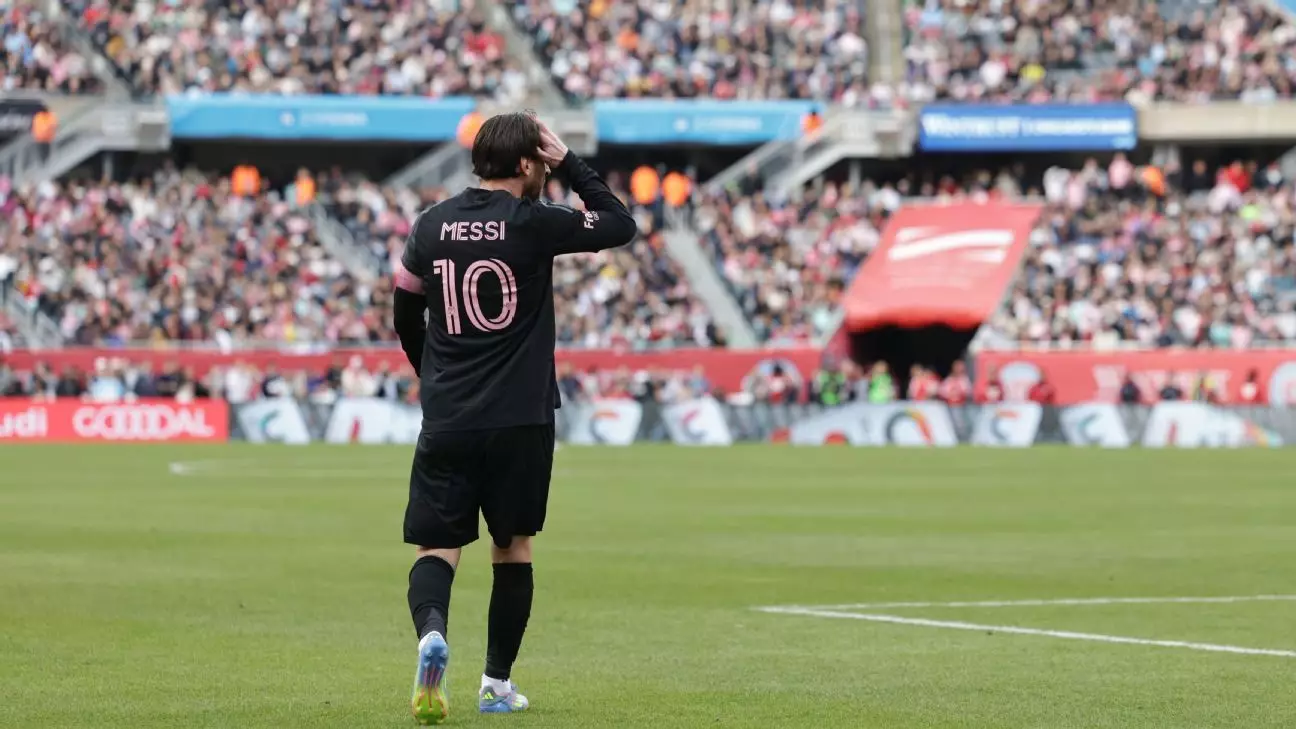The arrival of Lionel Messi at Inter Miami in 2023 has ushered in an unprecedented shift in Major League Soccer (MLS). Javier Mascherano, the head coach of Inter Miami, recently pointed out the substantial influence of Messi on the league’s growth during a post-match interview following a 0-0 stalemate with Chicago Fire. His assertion that Messi is altering global perceptions of MLS cannot be overstated. Messi’s presence in the league elevates it, but it also raises critical questions about how to sustain this momentum beyond individual stars.
While Messi’s situation provides undeniable benefits, such as generating record-breaking attendance numbers—specifically, the recent 62,358 fans at Soldier Field—there is a sense of urgency for MLS to harness this excitement for broader development. Mascherano’s insights reflect an awareness that while Messi garners global attention, the league must capitalize on this influx of interest to grow organically.
Attendance and Economic Impact
Messi’s magnetism is evidenced by his ability to draw crowds that surpass previous records, a trend reflected in other MLS clubs’ strategic decisions to hold matches against Inter Miami in larger venues to accommodate the surge in ticket demand. This phenomenon offers a significant economic boon not only for Inter Miami but for the league as a whole. Clubs such as the New England Revolution and Sporting Kansas City have already benefited from hosting record-setting matches, underscoring the financial windfall that can accompany a marquee player.
However, merely relying on Messi’s appeal isn’t a sustainable strategy. The league must be proactive in creating an infrastructure that keeps the excitement alive even after Messi’s eventual departure. Focusing on grassroots initiatives, fostering homegrown talents, and promoting vibrant rivalries can amplify the league’s attractiveness without solely depending on superstars.
Sustaining Progress: A Call to Action for MLS
Mascherano’s plea for the MLS to advance alongside Messi’s influence spotlights an essential challenge. While there’s no question that Messi elevates the league’s status, it is equally important to recognize the unique responsibilities placed on MLS administrators. This is a crucial moment for the league, not just to bask in the glory of Messi’s stardom, but to build upon the foundation he is helping to lay.
Without clear strategies to build on the excitement generated by Messi, the league risks finding itself in a precarious position when the limelight fades. Therefore, MLS must invest in training facilities, youth academies, and community engagement initiatives to transform the soccer landscape holistically. The challenge is not merely to keep pace with his legacy but to build an ecosystem where future talents can thrive.
Competitive Balance and Player Welfare
Despite the celebratory atmosphere surrounding Messi’s arrival, not all is well on the pitch. Inter Miami recently fell to third place in the Eastern Conference, a statistically rich yet frustrating outcome that exposes the team’s struggle amidst a grueling schedule involving both MLS matches and Concacaf Champions Cup competitions. Mascherano identified the fatigue from frequent games as a mitigating factor in their performance—a stark reminder that while star players shine bright, the team’s success lies in effective management of all its players.
Maintaining a competitive edge while preserving player welfare should be the league’s foremost priority. Regulating match loads to ensure players are fresh and capable of delivering their best performances becomes increasingly vital, especially in a league that aims to attract international attention and investment.
Looking Ahead: The Future of MLS
As Miami prepares for its upcoming fixtures against Columbus Crew and Vancouver Whitecaps, the focus must extend beyond immediate results. The integration of Messi is not merely a short-term gimmick; it poses profound implications for how MLS navigates its future. To avoid stagnation, the league needs to engage more deeply with its audience, find innovative ways to enrich the soccer experience, and develop a clearer vision for leveraging the star power that Messi brings.
The essence of this moment goes beyond what Messi can offer; it is an invitation to transform MLS into a lasting fixture in global soccer. By fostering local talent, enhancing fan engagement, and strategically navigating the balance of competition and wellness, the league can emerge not as a secondary choice among sports, but as a formidable player in the global sports scene.

